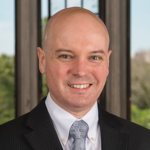The recent Facebook data breach, genetic data sleuthing by the FBI that led to the Golden State Killer, and the soon-to-be-implemented European General Data Protection Regulation (GDPR), has put data privacy and security front and center. The impacts are substantial across all industries, including healthcare.
Dr. Francis Collins, Director of the National Institutes of Health (NIH)
“I think that individuals who are interested in obtaining information about their DNA and are willing to pay for it ought to be able to do so… Genetic information ought to be held privately unless the individual decides to disclose it.” – Source
Dr. Francis Collins will join PMWC Michigan as a keynote speaker on June 6
Europe’s GDPR aggressive privacy law is around the corner
The European Union takes a tough stance on data privacy issues and the fate of personal data collected from individual patients and consumers across Europe. Not surprisingly, the new regulation will shift the power balance toward the consumer with the goal of strengthening data protection for all individuals and ensuring that users know, understand, and provide “explicit consent” for the use and distribution of data collected about them.
The GDPR applies to any institution, worldwide, which stores, processes or works with any data belonging to a EU citizen residing in the EU. The violation fine is the greater of €20 million or 4% of annual turnover. This new regulation will go into effect this Friday (May 25th).
GDPR’s Impact on healthcare:
- The GDPR is tougher than HIPAA – U.S. healthcare organizations that have traditionally been used to HIPAA now need to think about data protection in a much more refined way. Important considerations include data workflows, data handling, cross-border data transfer, data privacy, security monitoring, and overall policy compliance
- The “right to be forgotten” – Healthcare organizations must honor all patient requests to erase personal data
- Simplification of consent language to eliminate fine print and make it easier for patients to understand Informed Consent
- Tighter security including data encryption, to ensure data protection
- 72-hour window to inform EU patients of a data breach – the HIPAA window is 60-days from the time of discovery
- “Data concerning health”, “genetic data”, and “biometric data” will be strictly defined by the GDPR regulation as it pertains to health data
- “Explicit consent” is a prerequisite before processing of any health data
New technologies such as blockchain can remove the problems of unclear data ownership thereby improving data integrity and peer-to-peer accountability while big data applications involving AI require data sharing and establishing trust.
PMWC 2018 Michigan, June 6-7, will extensively focus on aspects of data privacy, security, and ownership. We have an exciting lineup of sessions and talks that dive deep into these various issues
Individuals as Research Partners Powered by Blockchain with Luna DNA CEO Dawn Barry
The Future of Individualized Medicine – A keynote with Eric Topol of the Scripps Research Institute
Patient- Controlled Data will Assist in Accelerating the Adoption of PM in the Clinic with Ciitizen CEO Anil Sethi

 Transforming Healthcare with AI requires Technology and Trust with Jason Crites of IBM and Piers Nash of Health2047
Transforming Healthcare with AI requires Technology and Trust with Jason Crites of IBM and Piers Nash of Health2047
Join over 500 attendees for this information-rich conference and directly engage with key precision medicine influencers. Do a deep dive into the topics of data security, privacy and ownership in the context of various new technologies and applications that advance precision medicine.
The conference begins in two weeks!
The Precision Medicine World Conference (PMWC), in its 17th installment, will take place in the Santa Clara Convention Center (Silicon Valley) on January 21-24, 2020. The program will traverse innovative technologies, thriving initiatives, and clinical case studies that enable the translation of precision medicine into direct improvements in health care. Conference attendees will have an opportunity to learn first-hand about the latest developments and advancements in precision medicine and cutting-edge new strategies and solutions that are changing how patients are treated.
See 2019 Agenda highlights:
- Five tracks will showcase sessions on the latest advancements in precision medicine which include, but are not limited to:
- AI & Data Science Showcase
- Clinical & Research Tools Showcase
- Clinical Dx Showcase
- Creating Clinical Value with Liquid Biopsy ctDNA, etc.
- Digital Health/Health and Wellness
- Digital Phenotyping
- Diversity in Precision Medicine
- Drug Development (PPPs)
- Early Days of Life Sequencing
- Emerging Technologies in PM
- Emerging Therapeutic Showcase
- FDA Efforts to Accelerate PM
- Gene Editing
- Genomic Profiling Showcase
- Immunotherapy Sessions & Showcase
- Implementation into Health Care Delivery
- Large Scale Bio-data Resources to Support Drug Development (PPPs)
- Microbial Profiling Showcase
- Microbiome
- Neoantigens
- Next-Gen. Workforce of PM
- Non-Clinical Services Showcase
- Pharmacogenomics
- Point-of Care Dx Platform
- Precision Public Health
- Rare Disease Diagnosis
- Resilience
- Robust Clinical Decision Support Tools
- Wellness and Aging Showcase
See 2019 Agenda highlights:
- Five tracks will showcase sessions on the latest advancements in precision medicine which include, but are not limited to:
- AI & Data Science Showcase
- Clinical & Research Tools Showcase
- Clinical Dx Showcase
- Creating Clinical Value with Liquid Biopsy ctDNA, etc.
- Digital Health/Health and Wellness
- Digital Phenotyping
- Diversity in Precision Medicine
- Drug Development (PPPs)
- Early Days of Life Sequencing
- Emerging Technologies in PM
- Emerging Therapeutic Showcase
- FDA Efforts to Accelerate PM
- Gene Editing / CRISPR
- Genomic Profiling Showcase
- Immunotherapy Sessions & Showcase
- Implementation into Health Care Delivery
- Large Scale Bio-data Resources to Support Drug Development (PPPs)
- Microbial Profiling Showcase
- Microbiome
- Neoantigens
- Next-Gen. Workforce of PM
- Non-Clinical Services Showcase
- Pharmacogenomics
- Point-of Care Dx Platform
- Precision Public Health
- Rare Disease Diagnosis
- Resilience
- Robust Clinical Decision Support Tools
- Wellness and Aging Showcase
- A lineup of 450+ highly regarded speakers featuring pioneering researchers and authorities across the healthcare and biotechnology sectors
- Luminary and Pioneer Awards, honoring individuals who contributed, and continue to contribute, to the field of Precision Medicine
- 2000+ multidisciplinary attendees, from across the entire spectrum of healthcare, representing different types of companies, technologies, and medical centers with leadership roles in precision medicine












